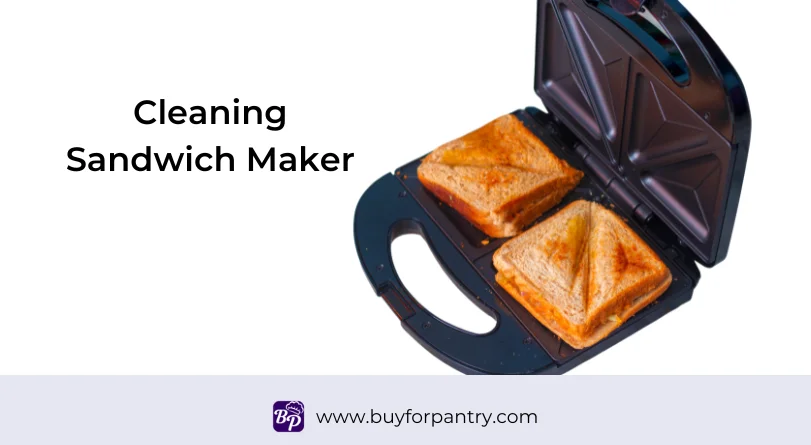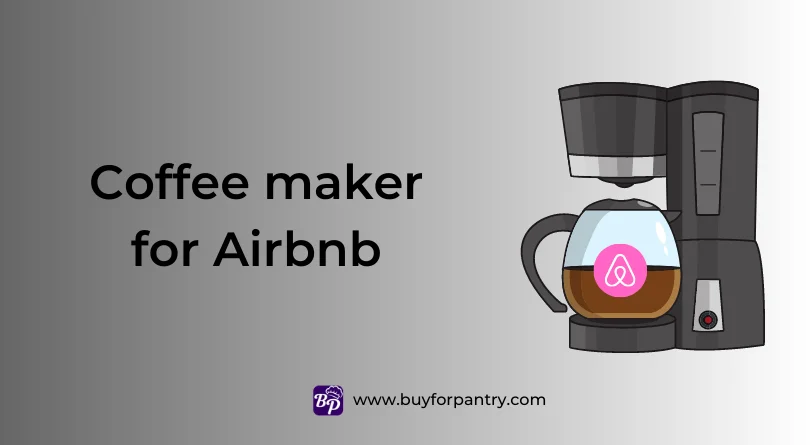“Should I go for the electric one or the stovetop one?” If you have this question buzzing through your head, then you have hit the right place dear, as the answer lies here. With a detailed comparison, the Electric vs. stovetop pressure cooker review solves every shopper’s dilemma; looking for a pressure cooker either for the first time or again. So, Mr. /Miss. /Mrs. Shopper, what do you wait for? Read to figure out your choice.
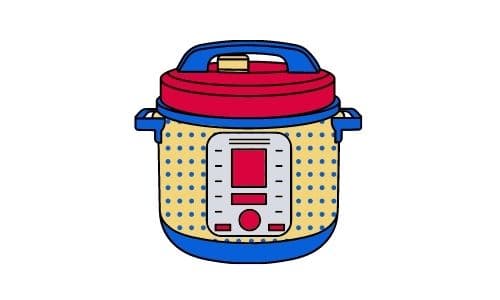
Electric or Stovetop pressure cooker: to whom does it best suit?
Before heading on to the comparison, lets’ know which pressure cooker suits your prowess and lifestyle the most?
Electric pressure cooker is best for:-
- Those who are nervous with adjusting the heat. The electric cooker has it pre-programmed, so just set it and indulge in other tasks.
- Those who are inclined to similar kinds of appliances like a slow cooker, Nutri-pot, yogurt maker. This all-in-one appliance is a good replacement.
- College students and people who have small or no kitchen space in their rooms or apartments. This complete cooking equipment cooks, sauté, keep food warm, and do many more.
- Senior citizens and the differently-abled person with no need to remember whether the burner is switched on or off. The auto-shut feature is present in all the models. Being, portable it can be placed at any height.
- Busy people who want to dinner to be ready when they get home from work. The delay timer present in many models starts cooking before one walks indoors.
- Cooks who do pressure cooking the most and use stovetop cookers.
Stovetop pressure cookers are best for:-
- Those who need both speed and power in the cooking process. Stove to cooker reaches higher speed and power than the electric one.
- Cooks who like to supervise and tinker with the cooking process.
- Those who value durability over convenience.
- Those who want to try advanced cooking technique.
Instant pot, slow cooker whatever you call, an electric pressure cooker surely has an edge over stovetop pressure cooker. Mainly, it makes difference in advantages. Certainly, the electric pressure cookers win over conventional pressure cookers.
Find the top 10 induction pressure cookers here.
Stovetop vs electric pressure cooker: the comparison
And here comes what you have been waiting for, the difference that the stovetop pressure cooker and the electric pressure cooker have.
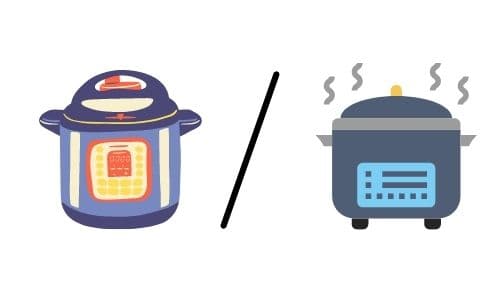
| Features | Stovetop Pressure Cooker | Electric Pressure Cooker |
| Pressure Setting | Most of the stovetop pressure cooker has dual pressure setting with a standard pressure range. The range for low pressure is 6-8 PSI and for high pressure is 13-15 PSI. | The electric pressure cooker comes with a single pressure setting and varied maximum pressure range, depending upon the models. Some come with 6-13 PSI, while some claim to have as high as 15 PSI. |
| Heat Regulation | Stovetop pressure cookers are built with a manual heat regulation system, where the user has to adjust the heat to prevent over-pressure or losing pressure. | Every electric pressure cooker is designed with an automatic heat regulation system. You just, need to select the desired pressure or program, the cooking time, and start the appliance. |
| Time Consumption | The pressure cooker initiates 3x faster cooking, depending upon heat source, temperature, and fill level. It takes a maximum of 10 minutes. | Electric pressure cooker facilitates 2x faster cooking depending upon the fill level, the wattage of the heating coil, and temperature. It takes about 14 minutes. |
| Pressure Release Time | Normal-pressure release time- 2minutes. Natural pressure release time- 10 minutes. Some models have a specific release mechanism. | Normal-pressure release time- 3 minutes Natural pressure release time- 25 minutes. |
| Automatic Functions | A stovetop pressure cooker is devoid of cooking programs, integrated timer, and scheduled features. The induction-compatible ones can be semi-automated by the timer present on the cooktop. | Every electric pressure cooker is built with an integrated timer that tracks the cooking time. Moreover, the modern, new version has a computerized interactive smart cooking program with a pressure sensor a thermostat. It also has up to 12 hours scheduled and delay features. |
| Composition | It is made from aluminum and stainless steel. While the exterior is made from either the two or aluminum alone, the interior is composed of aluminum only. However, the one with the ceramic coated exterior is also available. | It has a heat-resistant plastic exterior, while the inner lining is done with aluminum. But, the new age models now, have a stainless steel interior, or one with anodized aluminum or ceramic coating. |
| Versatility | Every stovetop cooker is versatile enough to be used as a cooking pot without a lid. Moreover, the 10 L models are appropriate to do pressure canning. | An electric pressure cooker is versatile enough to be used as a slow-cooker or multi-cooker but, it cannot be used as a regular pot. However, many models include sautéing or browning function. One cannot pressure can in it. |
| Durability | Highly durable cookware; stovetop pressure lasts for generations, from 10-20 years or more. Even the one by popular brands comes with a warranty of 5 years. | An electric pressure cooker is not as durable as the stovetop one. An electric pressure cooker may last for 3-5 years. However, few models may last longer. |
| Storage | The Stovetop pressure cooker is bulky, but it is storage-friendly. You can easily store your stovetop pressure cooker with the other pots and pans. | The electric pressure cooker is a tall and heavy appliance, which makes it difficult and risky to store them on overhead shelves. |
| Heat Source | Every stovetop cooker is gas stove-compatible. But, the new age cooker is compatible with all types of cooktop; gas stove, electric, induction, ceramic glass cooktop, even on a camping stove or BBQ. | This pressure cooker draws heat from the only source, electricity. A good power supply connection is a must-have to operate these cookers. |
| Price | A stovetop pressure cooker is a budget-friendly cookware. However, the ones from the top brands are a little expensive than the contemporaries. | Electric pressure cooker requires a good investment. However, certain products are budget-friendly too. |
| Replaceable Parts | Gaskets and other silicone parts are replaceable which are easily available by the manufacturer. | The non-stick pot is damage-prone and replaceable at the same time. Equally replaceable are the gasket and silicone attachments. Replacement from the non-established brands is difficult to track. |
If you are a fan of Fissler pressure cookers then here are the best Fissler pressure cookers.
5 best electric pressure cooker
- Instant Pot Smart WiFi
- Presto Electric Pressure Cooker
- Ninja Pressure Cooker
- COMFEE’ Rice Cooker
- MOOSOO Electric Pressure Cooker
5 Best Stovetop Pressure Cooker
- Presto Stainless Steel Pressure Cooker
- Barton Stovetop Fast Cooker Pot
- Hawkins Hard Anodised Pressure Cooker
- Culina One-Touch Pressure Cooker
- Prestige Popular Aluminium Pressure Cooker
How to choose an electric or stovetop pressure cooker?
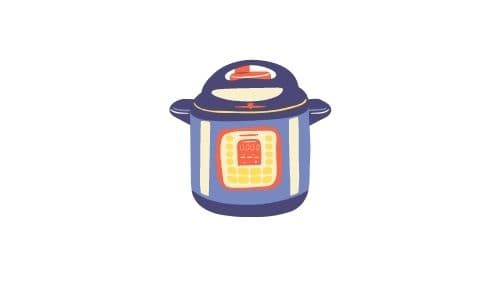
Once you start your search for an electric or stovetop pressure cooker, you will find a list of the many excellent ones. Choosing the right one from the list can be a real challenge. However, consideration of the factors will be of significant help. Here they are.
The capacity
The first feature we look for in a pressure cooker is the capacity, which depends on the needs and family size. Available from 1-12 liters/quart (electric or stovetop), this multi-purpose cookware is opted by all, from college students, professionals who live alone, family members to those who need it to cook a big batch.
The Safety Features
A safe device is a good device! In the case of both electric and stovetop pressure cookers, prefer models with safety features like safety valves and secure lids. They help to maintain the ideal pressure and prevent the occurrence of any mishap. Of course, they come with other features like a spring valve (in stovetop ones) and float valve (in electric ones) that make them energy-efficient, also. But, make sure the electric ones you go for should comply with the NF EN 12 778 standards.
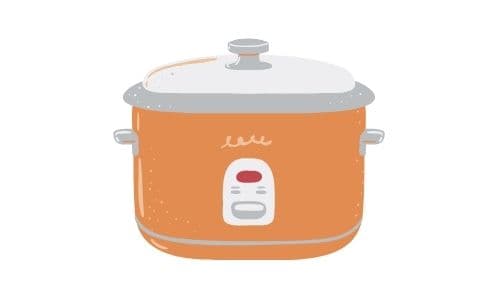
The material in the interior
Generally, both stovetop and electric pressure cookers have interiors of stainless steel or aluminum which is durable, scratch-resistant and easy to clean. But, many brands offer non-stick interior in the electric version that can get chipped or scratched easily.
Warranty
Make sure the pressure cooker you select comes with a standard warranty at least. Though for both the stovetop and electric pressure cooker many brands offer a warranty for 3-5 years. That’s pretty impressive, isn’t it?
Brand
Brand is very important for products like a pressure cooker. It contains wearable parts which need replacement after a certain period like the gasket, silicone ring and the smaller parts of the safety valve, which is easily available from the manufacturer. But, with the one from the non-reputed brand, the replacement can be an issue.
The price
Price is, of course, a criterion that must be taken into account, because the requirements must comply with your budget. The ones from top brands are a little expensive but, there are also certain budget-friendly brands that are equally reliable.
You will find a great guide on stainless steel pressure cookers here.
Final words: Electric vs Stovetop Pressure Cooker
Which of them is the best? The answer to the question depends upon the individual’s choice. Both the pressure cookers have numerous merits and little demerits. And it is only you who can decide what suits your requirement the most, the stovetop pressure cooker or the electric one. If you have the intention to make use of its versatility as a cooking pan stovetop is the one you need. But, if you want high-tech and smartly programmed pressure cooker, the electric one is the one.
Hence, the primary fact is whatever you choose, it is going to be an efficient addition. After all, the technique saves a lot of time, energy and above all, preserves the nutrients of every food.
Don’t forget to check our article on rice cooker vs slow cooker here.

